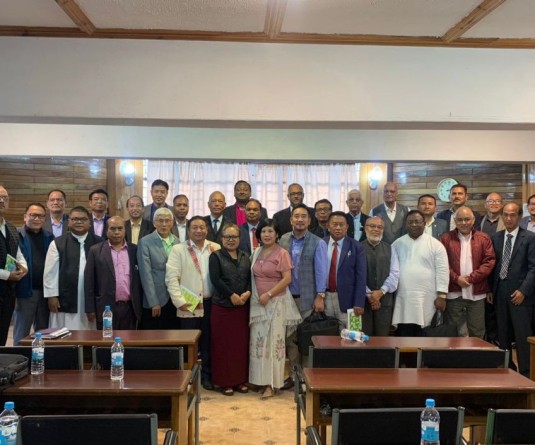
Moatemsu
Asst. Prof., St. Joseph’s College, Jakhama
The Right to Information Act 2005 was enacted by the Indian Parliament to empower citizen easy access to information from the public authority. The Act provides a powerful tool to the citizen to promote transparency and accountability in the working of public authority by granting the right to secure information under the control of public authorities.
The following rights are provided under the Act:
1. A citizen has a right to seek such information from the public authority which is held by them or which is under their control. This rights includes inspection of work, documents and records, taking notes, extracts or certified copies of documents or records and taking certified samples of materials held by the public authority or held under the control of the authority. 2. The Act gives the citizen a right to information at par with the Members of Parliament and the Member of State Legislatures. 3. A citizen has a right to obtain information from a public authority in the form of diskettes, floppies, tapes, video cassettes or in any other electronic mode or through print-outs. 4. A citizen has the right to get the information in the form in which it is sought. Such that if the information is sought in the form of photocopy, then it shall be provided in the form of photocopy. 5. A citizen has the right to get material from a public authority which is held by or under the control of that public authority.
Information is any material in any form. It includes records, documents, memos, e-mails, opinions, advices, press releases, circulars, orders log- books, contracts, reports, papers, samples, models, data material held in any electronic form. It also includes information relating to any private body which can be accessed by the public authority under any Law for the time being in force.
A Public Authority is any authority or body or institution of self government established or constituted by or under the Constitution; or by any other law made by the Parliament or State Legislature; or by notification issued or order made by the Central Government or a State Government. The bodies owned, controlled or substantially financed by the Central Government or State Government and NGO substantially financed by the Central Government or State Government.
Though under the Act, information is to be disclosed or provided on request, there are certain categories of information which are not to be disclosed.
a. Information relating to sovereignty, security, integrity, strategic, scientific and economic interests, relation with foreign States and incitement to violence; b. Information forbidden by courts/ tribunals and disclosure which would constitute contempt of court; c. Information the disclosure of which would amount to breach of Parliament or Legislative Assembly; d. Information relating to commercial confidence, trade secrets or intellectual property rights; e. Information available to a person in his fiduciary relationship; f. Information received in confidence from foreign Government; g. Information the disclosure of which would endanger life or physical safety of any person or lead to identification of source of information or assistance given in confidence to law enforcement or security purposes; h. Information which impede investigation; i. Cabinet papers of Ministers, Secretaries or other officers; j. Information relating to intelligence and securities and security agencies notified by the Appropriate Government as being exempt from the purview of the Act.




